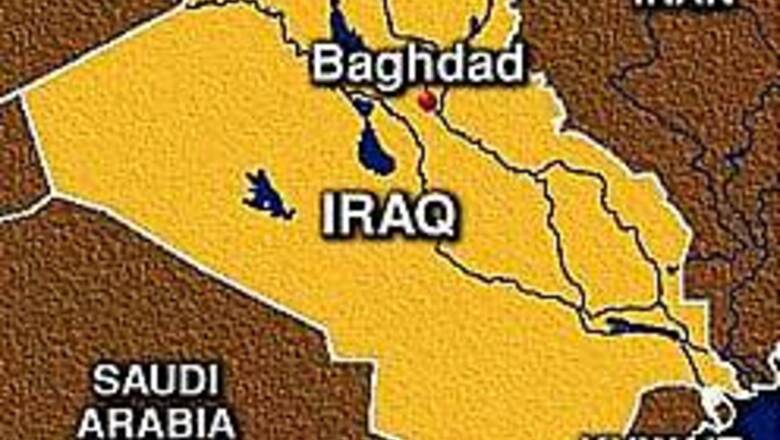
views
Baghdad: A suicide car bomber blasted two coachloads of Iranian pilgrims outside a Shi'ite Muslim shrine in Iraq at dawn on Thursday, killing 10 people and wounding 40, police and hospital sources said.
The bomber drove his car between the two coaches as they arrived at the Maithem al-Tamar shrine in Kufa, a religious centre on the outskirts of the main Shi'ite holy city of Najaf, 160 km (100 miles) south of Baghdad, police said.
The burnt out wrecks of the vehicles lay in the street.
Three women in distinctively Iranian dress lay dead.
Police said several Iraqi children, who make a living wheeling invalid pilgrims in carts at the shrine, were also caught in the blast. Many sleep there, waiting for business.
At Najaf's Hakim hospital, doctor Alaa al-Tayar said he had seen 23 wounded and seven dead, while a second hospital in Najaf had two bodies and three wounded.
A third hospital, in Kufa itself, had one dead and 14 wounded.
Shi'ite worshippers have been targeted in the past in apparently sectarian attacks by Sunni Arab insurgents and the US military warned on Wednesday of a possible increase in car bomb attacks following the supposed succession of Abu Ayyub al-Masri as head of al-Qaeda in Iraq.
Masri, named by Osama bin Laden last week after the US air strike that killed former chief Abu Musab al-Zarqawi a month ago, has a reputation as an organiser of suicide car bombings.
Since the fall in 2003 of Saddam Hussein, whose Sunni Muslim-dominated government fought Shi'ite Iran in the 1980s, large numbers of Iranians have travelled to holy sites around Najaf, the main centre for the Shi'ite branch of Islam.
Dominant in the rest of the Arab world, some Sunni Muslims view Iraq's Shi'ite majority, installed in power through US- sponsored elections, as allies of non-Arab Iran.
Al-Qaeda's radical version of Sunni Islam views Shi'ites as apostates and Zarqawi when alive vowed all-out war against them.
Kufa is also a base for many supporters of the radical Shi'ite cleric and militia leader Moqtada al-Sadr.
His Mehdi Army fighters, along with other Shi'ite armed groups, are accused by Sunnis of sectarian violence against their community.
Bloodshed, especially since the bombing of a major Shi'ite shrine at Samarra in February, has pitched Iraq toward all-out sectarian civil war.
The seven-week-old, US-backed national unity coalition government of Shi'ite Prime Minister Nuri al-Maliki is trying to avert that and launched a national reconciliation drive last week to try to win over insurgents to the political process.
Though still heavily dependent on US military support, the government's ties with Washington have been put under pressure this week by public outcry over a rape and murder case in which US soldiers are accused of killing a family near Baghdad.
The latest in a handful of possible serious crimes being investigated by the military, the rape element of the Mahmudiya incident in March makes it potentially more damaging as US and Iraqi leaders look to put their relationship on a new footing following the formation of a fully-empowered government.
Maliki called on Wednesday for an independent inquiry and a review of foreign troops immunity from Iraqi law, which he said had "emboldened" soldiers to commit crimes.
He has called on commanders to hold troops accountable, something US officers have pledged to do.














Comments
0 comment